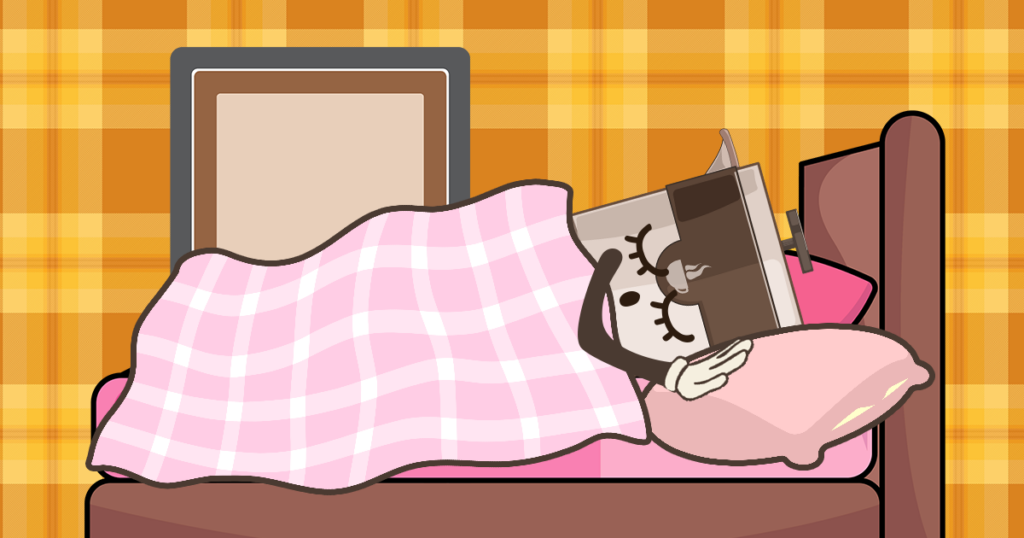Have you ever wondered how the timing of coffee consumption impacts your sleep? Let’s explore how drinking coffee before bed affects your rest, based on a recent study on caffeine and sleep disruption.
The Effects of Coffee Consumption 0 Hours Before Bed
Coffee consumption has a half-life of 5 to 6 hours, so it stays in your system long after your evening pick-me-up. As a stimulant, it blocks adenosine, a chemical in the brain that promotes relaxation and drowsiness. This can make it harder to fall asleep or stay asleep. It may also prevent you from reaching the deeper stages of sleep that your body needs.
A recent study shows that even consuming caffeine at bedtime disrupts sleep. Caffeine taken 0 hours before bed leads to fragmented sleep. This disruption can result in significant sleep loss, especially if it happens regularly, affecting daytime function and performance.
The Effects of Coffee Consumption 3 Hours Before Bed: Sleep, But Not Restful Sleep
Drinking coffee just three hours before bed might help you fall asleep faster. However, it won’t help you stay asleep. The study revealed that caffeine still caused noticeable disruptions, such as shorter sleep time and lighter sleep stages. You may fall asleep more easily, but the quality of sleep will be compromised.
The study found that caffeine consumed 3 hours before bed disrupted both self-reported and measured sleep. This means the caffeine interferes with the natural sleep cycle.
Caffeine may not have an immediate impact, but it can cause fragmented sleep and more frequent wake-ups during the night.
Coffee Consumption 6 Hours Before Bed: The Sweet Spot for Sleep?
To enjoy your favorite caffeinated beverage and still get a good night’s sleep, consume caffeine at least six hours before bed. This timing works for many people, but as the study shows, even six hours before bedtime, caffeine can still reduce sleep duration by over an hour.
The study emphasized that even at this longer interval, caffeine still disrupts your sleep in ways that you may not always perceive subjectively. Researchers detected the disruption only through objective measures, such as sleep tracking devices. This discrepancy between subjective perception and objective measurements suggests that people may not fully recognize the negative impacts caffeine has on their sleep.
If you want to enjoy your favorite caffeinated beverage and still get a good night’s sleep, consume caffeine at least six hours before bed. This timing is still effective for many people, but as the study shows, even 6 hours prior to bedtime, caffeine still reduces sleep duration by over an hour. For more on the long-term health effects of your daily cup, check out our blog Can Your Daily Cup Extend Your Life? to explore the surprising longevity benefits of coffee.
Key Takeaways:
- Even at 6 hours before bed, coffee consumption significantly reduces sleep by more than 1 hour, with potential long-term impacts on daily functioning.
- Caffeine-induced sleep disturbances are detectable even when consumed 3 hours before bed, affecting both subjective reports and objective sleep measures.
- Avoid moderate-to-large doses of caffeine, such as those found in premium coffees and energy drinks, in the afternoon to minimize sleep disruption.
- Fragmented sleep may occur when caffeine is consumed closer to bedtime, making it harder to reach deeper sleep stages and increasing nighttime awakenings.
If you’re looking to enjoy a boost from caffeine without sacrificing sleep, try cutting off your intake at least 6 hours before bed. Your body—and your sleep—will thank you! For optimal results, consider consuming caffeine earlier in the day, ideally before 5:00 PM, especially if you’re sensitive to its effects.
Preferences: https://jcsm.aasm.org/doi/10.5664/jcsm.3170

